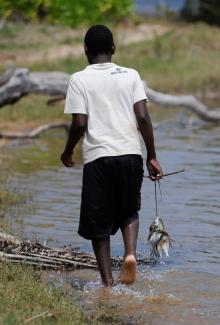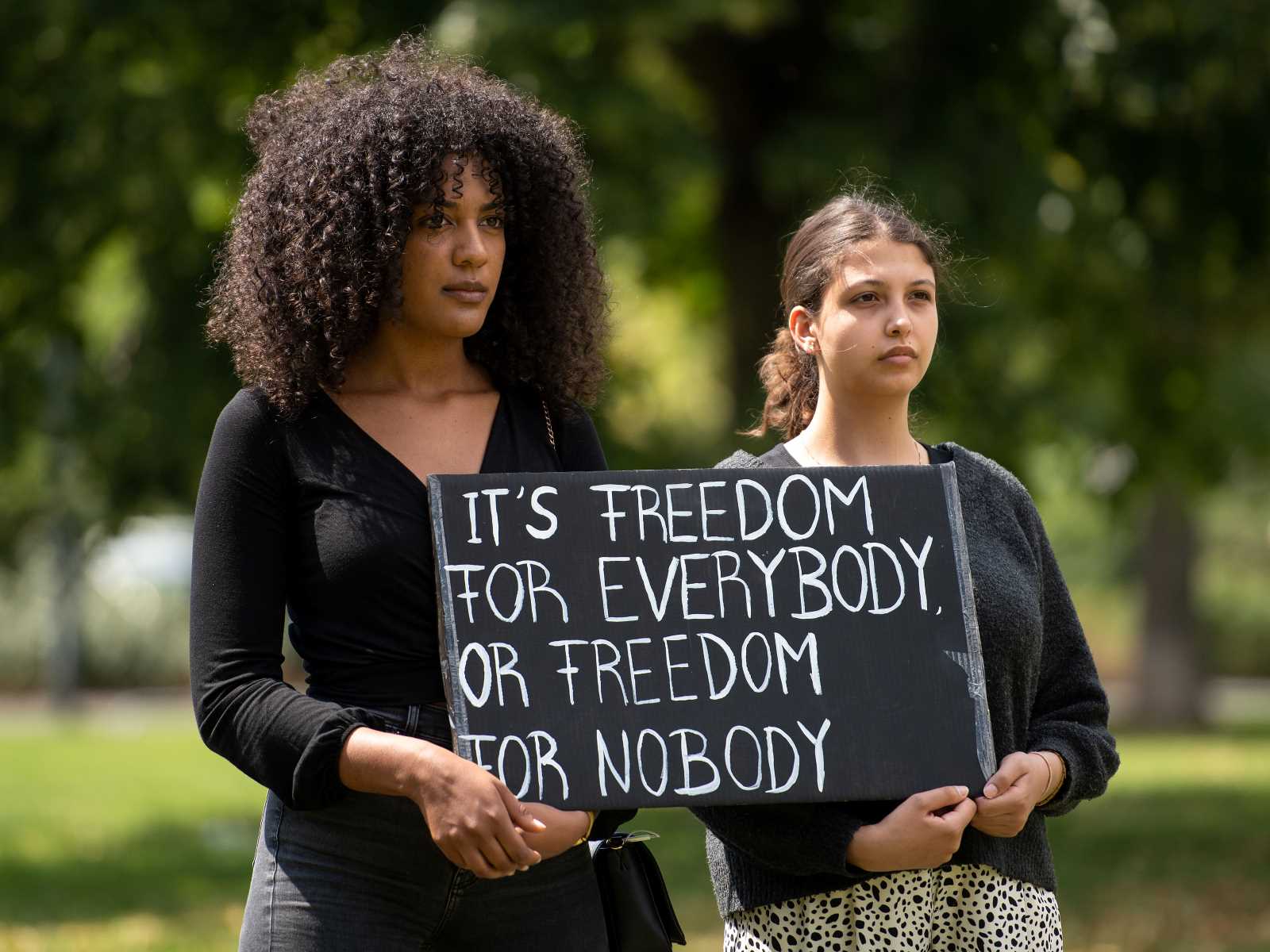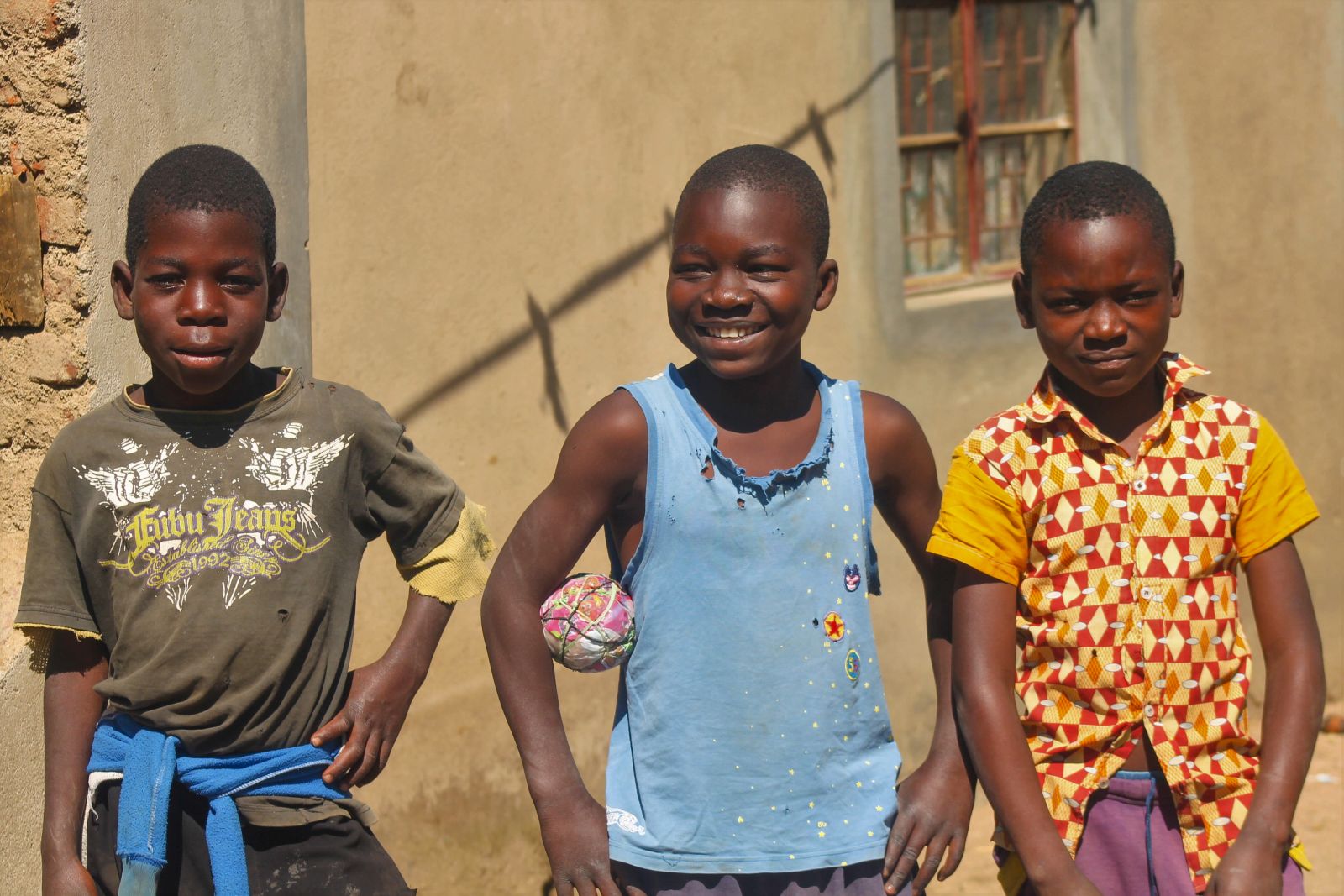Summer Special
The power of superstition

The story starts in unspectacular fashion. Nine-year-old narrator Ben and his brothers are bored and hit on the idea to go fishing at the local river of their home town Akure in the south of Nigeria. The boys hope to make some money by selling their catch.
The narrator reports that the Oni-Ala River is strictly off-limits for the boys because it is said to be cursed and to bring misfortune. The youngsters ignore the warning. They find fishing great fun and proudly declare themselves “fishermen”. After three weeks, however, they are discovered by a neighbour, who tells their mother.
The mother, who has two other young children to look after as well as a stall in the market, is livid. She threatens to tell their father, who works for the Central Bank of Nigeria and, after a recent transfer to far-off Yola, only comes home at weekends. The four brothers are terrified of their father, who is a strict God-fearing man and a firm believer that children who break the rules need to be physically disciplined. As anticipated, the father is furious when he hears of the “barbarous act”, and he subjects his sons to a merciless beating. The oldest, 15-year-old Ikenna, receives the harshest punishment of all.
The moment marks the beginning of what the narrator calls Ikenna’s “metamorphosis”. Ikenna feels he has been unfairly treated by his father and gradually withdraws into himself, rejecting his brothers – especially 13-year-old Boja, to whom he has always been very close.
As Ikenna’s behaviour becomes increasingly aggressive, his mother tries to find out what is wrong. She (and the reader) discovers what really happened on the last day at the river. The boys ran into the local madman Abulu, who lost his mind in a car accident and is feared by everyone because of his powers of prophecy. Abulu cursed Ikenna and predicted that he would be killed by a fisherman.
Ikenna immediately assumes that that fisherman must be his brother Boja. Henceforth, Ikenna closes himself off, refuses to have anything more to do with the family and locks Boja out of the room that they share. Everyone finds Ikenna’s behaviour increasingly unbearable.
A chain of tragic events is unleashed. And even when the reader thinks there can be nothing worse to come, Obioma continues to unravel his tale, building the climax even higher. The closing pages are riveting. The reader is desperate to know how the story ends.
Apart from the actual storyline, the reader discovers how people tick in Akure, the small town where the author himself was born as one of 12 children in 1986. The novel is set in the mid-1990s and is narrated in retrospect. The narrator’s family is very religious, members of one of the many evangelical churches. They live in a house with several rooms and are certainly not poor. The children go to school and have everything they need. But the father’s absence and lack of parental control pave the way for disaster.
Christian faith is mixed with superstition. No one doubts the magic powers of mad Abulu. Even Ikenna seems convinced that Abulu has cursed him, and he is driven crazy with fear. He no longer trusts his own common sense or his brothers’ assurances that they love him and will never harm him. Their shared past no longer counts. Ikenna even destroys important mementoes which symbolise the bond that unites the brothers.
The narrator never finds out what Ikenna really thinks or how he feels. After the incident with Abulu, Ikenna barely speaks, unable to articulate his thoughts and fears. He rejects his mother’s and brothers’ offers to talk, leaving the family – and the reader – feeling desperately helpless. After a surprising and dramatic finale, there is a sense that everything that happened in the story was totally pointless and futile.
Book
Obioma, C., 2015: The Fishermen. Pushkin Press, London.














